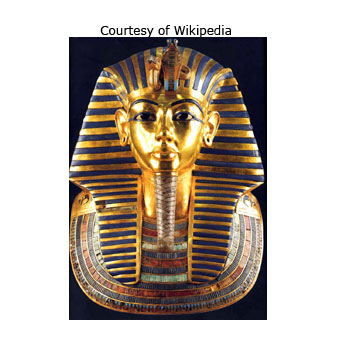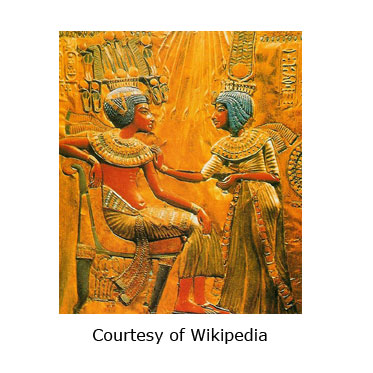ESL Practice Questions – The Present Perfect Tense – Ancient Egypt Part 2
- Posted by Daisy Stocker
- Date February 3, 2012
- Comments 1 comment
The Present Perfect Tense
Many of the English grammar tenses are not too difficult but others give students a lot of trouble deciding when to use them. Since we can’t think through a grammar rule as we speak, the best way is to participate in activities with other students, speaking orally and using the tenses. This blog will provide some practice exercises identifying and using the present perfect tense. You may want to try some of them orally with a friend as well as doing them on your own.
This is part 2 – See part 1 here
My husband and I discovered the importance of learning in sentences years ago, when we went to Spain to learn Spanish. We’d been teaching English in Eastern Europe for some time and thought we might learn about teaching by sitting in the hot seat and learning Spanish. So while there,we learned hundreds of vocabulary words and many grammar rules, but when we went to the local café to order coffee we couldn’t put a sentence together. After stumbling through a series of word and finally getting our coffee we would sit and try to figure out what we should have said!
The Present Perfect Tense
This tense expresses the idea that something happened (or didn’t happen) before now, at an unspecified time in the past. The exact time it happened is not important.
In the exercise below, identify the present perfect tense by choosing the sentence using that tense.(There may be more than one verb in the sentence.)
The good news is that frequently there is more than one tense would be correct.
EXAMPLES:

Tutankhamun’s tomb has been of interest for years.
Archaeologists have died after entering the tomb.
1: a. Historically, Tutankhamun has not been an important pharaoh.
b. Tutankhamun was pharaoh for only ten years.
c. Pictures show Tutankhamun when he is pharaoh.
2: a. Tutankhamun’s tomb was discovered in 1922.
b. No one has solved the mystery of Tutankhamun’s tomb.
c. There is still a mystery about Tutankhamun’s tomb.
3: a. Tutankhamun’s tomb is the most complete.
b. Tutankhamun’s tomb was the most complete
c. Tutankhamun’s tomb is the most complete find that archeologists have made.

4: a. Tutankhamun was likely murdered.
b. The mystery remains, “Who has murdered Tutankhamun?
c. Some archeologists believe that he broke his leg in a chariot accident.
5: a. Tutankhamun’s spirit has killed the archeologists.
b. The Egyptian newspapers declared that, “The archeologists were killed by Tutankhamun’s spirit.
c. The Egyptian newspapers declared that, “Tutankhamun’s spirit killed the archeologists that entered his tomb..
Complete the paragraphs using the Present Perfect Tense form of the verb in brackets.
Tutankhamun became pharaoh when he was nine years old. Historically he (not, to be) ________________ an important pharaoh but historians (to know) __________________ about his tomb for a long time. The Egyptian government (to preserve) ______________ the artifacts found in his tomb and (to display) _________________ them in many museums around the world.
Tutankhamun’s tomb is discovered in 1922 and there (to remain) ____________________ an unsolved mystery. It is the most complete tomb that archeologists (to find) ___________________ since they began their search. When they first enter they know it is dangerous,because a fortune teller (to warn) ________________ them that they would die if they removed anything. Perhaps they should (to believe) ___________________ her because they were all dead within a few years. The Egyptian newspapers quickly spread the news that the leading archeologist (to die) _________________.
As the others died fear spread throughout the world! Is it the spirit of Tutankhamun that (to kill) __________________ them? Is there a deadly virus that (to spread) ___________________ among them? No one (to solve) __________________ this mystery. Perhaps we’ll never know why only those who entered the tomb on the fateful day soon met with an unexpected death.
English Practice Questions
- Listening Comprehension Practice Questions - Passage 1 - On the Bus - Questions 1 - 3 Passage Only Passage and Questions 1. a. Because she likes hockey b. Because her cousin is playing c. …
- Reading Comprehension Practice for Advanced ESL Students - The following questions are based on several reading passages. Each passage is followed by a series of questions. Read each passage carefully, and then answer the questions based on it. …
- Listening and Speaking English Practice 1 - Vocabulary for each Lesson Everyday Conversations – Listen to full audio then role-play! 14 Lessons 2 Review Chapters 2 Full Audio Tests with Answer Key Role Play Telephone Conversations and …
- English Usage Practice Test Questions - English usage and grammar are similar but not the same. Grammar: Grammar is the rules and structure of clauses, phrases, and words in English. Grammar covers he arrangement of words …
- Sentence Completion Practice Questions - Sentence Completion are common types of vocabulary questions on many ESL standardized tests. Sentence Completion can be used for vocabulary, as with the practice questions below, or for other types of tests, such as …
- English Grammar Practice Test Questions - English grammar is a popular item on most standardized tests including many ESLEFL tests. Below are English grammar practice test questions. Here are a few sources for English Grammar – Wikipedia, The …
- ESL Practice Questions – The Present Perfect Tense – Ancient Egypt Part 2 - Many of the English grammar tenses are not too difficult but others give students a lot of trouble deciding when to use them. Since we can’t think through a grammar …
- ESL Practice Questions for the Past Tense – Ancient Egypt Part 1 - Students are studying English in most countries of the world. It has been our experience while teaching in Central Europe, Brazil and Hong Kong, that students have difficulty with the …
Date Published: 2012-02-03
Date Modified: 2025-02-28
Daisy Stocker taught ESL in Eastern Europe for 10 years and was a primary school teacher in Canada for 30 years. Daisy has a B.A. and M Ed. in Education.
You may also like
Listening Comprehension Practice Questions
Passage 1 – On the Bus – Questions 1 – 3 Passage Only Passage and Questions 1. a. Because she likes hockey b. Because her cousin is playing c. …
Reading Comprehension Practice for Advanced ESL Students
The following questions are based on several reading passages. Each passage is followed by a series of questions. Read each passage carefully, and then answer the questions based on it. …
Listening and Speaking English Practice 1
Vocabulary for each Lesson Everyday Conversations – Listen to full audio then role-play! 14 Lessons 2 Review Chapters 2 Full Audio Tests with Answer Key Role Play Telephone Conversations and …

1 Comment